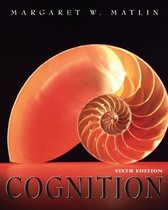Samenvatting
THINKING & DECIDING: EXTENSIVE SUMMARY OF LECTURES + BOOKS (cognition + kahneman)
- Instelling
- Technische Universiteit Eindhoven (TUE)
- Boek
- Cognition
Wanna get this document cheaper? Send an e-mail to: ****** ENGLISH ****** Summary of EVERYTHING for thinking & deciding. I had this exam during COVID-19 and could use this summary during the exam, so everything is in it. Thinking Fast & Slow (Kahneman) + Cognition (Matlin) and all lectu...
[Meer zien]





